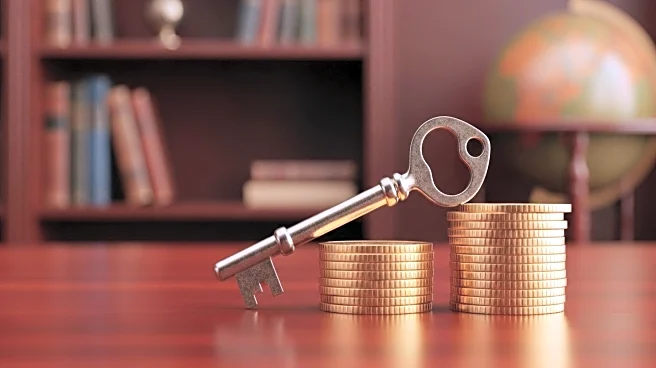What is the story about?
What's Happening?
A movement to eliminate property taxes is gaining traction among conservative leaders, driven by rising real estate prices and household budget pressures. Prominent figures such as Rep. Marjorie Taylor Greene and Elon Musk have voiced support for abolishing property taxes, which they argue are akin to a government lease on private property. Florida Governor Ron DeSantis has expressed interest in moving his state towards eliminating these taxes, citing the need for homeowners to own their property free from government claims. Historically, property taxes have funded essential local services, but the surge in home values has led to increased tax bills, sparking a 'property tax revolt' across various states. Recent voter-approved measures in nine states have aimed to cap or curb rising assessments, while lawmakers in states like Texas and New York have enacted significant property tax relief. Grassroots campaigns in Michigan and Ohio are pushing for ballot initiatives to abolish property taxes entirely.
Why It's Important?
The push to eliminate property taxes could have significant implications for local government funding and services. Property taxes account for a substantial portion of local revenue, supporting schools, infrastructure, and emergency services. Critics warn that removing this tax could devastate local budgets, as alternative revenue sources like sales taxes may not suffice, especially in rural areas. The movement reflects broader anti-tax sentiments and could reshape tax debates and Republican politics. If successful, it could lead to reduced government size and influence, impacting public services and community support systems. The debate highlights tensions between property rights and the need for sustainable local government funding.
What's Next?
The movement to abolish property taxes is expected to continue gaining momentum, with potential ballot initiatives and legislative proposals in various states. Florida Governor Ron DeSantis is exploring a 2026 ballot measure to phase out property taxes on homes, leveraging the state's tourism revenue. In Texas, Rep. Brian Harrison has proposed a constitutional amendment to end property taxes by 2031. The movement may attract more financial backing from conservative groups, potentially influencing upcoming elections and policy decisions. However, opposition from diverse coalitions, as seen in North Dakota, could pose challenges to the movement's success.
Beyond the Headlines
The movement to abolish property taxes raises ethical and economic questions about the balance between individual property rights and community responsibilities. It challenges traditional funding models for local governments and could lead to innovative solutions for public service financing. The debate may also influence broader discussions on tax policy and government size, reflecting shifting priorities in American politics.















